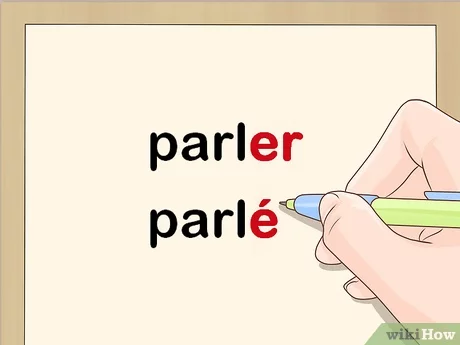4 Ways to Conjugate French Verbs into Passé Composé

Learning French can often feel like a daunting task, but mastering the passé composé is an essential step towards fluency. The passé composé is a commonly used past tense in French, often employed to express completed actions that occurred in the past. By understanding the four ways to conjugate French verbs into passé composé, you’ll be able to confidently discuss events that have happened in the past. Here are the four ways to achieve this:
1. Regular Verbs with “avoir”
For most French verbs, you’ll use the auxiliary verb “avoir” (to have) when conjugating them into passé composé. To do so, combine the present tense of “avoir” with a past participle formed by adding endings to the stem of the verb.
– For -er verbs (e.g., parler): remove -er and add é (past participle = parlé)
– For -ir verbs (e.g., finir): remove -ir and add i (past participle = fini)
– For -re verbs (e.g., vendre): remove -re and add u (past participle = vendu)
Example: J’aiparlé. (I talked)
2. Irregular Verbs with “avoir”
While many French verbs conjugate in passé composé using “avoir,” some have irregular past participles that don’t follow the regular conjugation rules. Memorizing these irregular participles will help you speak more fluently.
Example: J’ai pris (I took), where “prendre” has an irregular past participle: pris.
3. Reflexive Verbs with “être”
Reflexive verbs use “être” (to be) as their auxiliary verb in passé composé instead of “avoir.” When conjugating reflexive verbs, place the reflexive pronoun (me, te, se, nous, vous, se) before the conjugated verb “être” and follow with the past participle.
Example: Je me suis lavé (I washed myself)
4. Verbs of Motion with “être”
Another group that uses “être” instead of “avoir” includes verbs of motion or change of state. These verbs indicate movement or a transition from one state to another. Just like reflexive verbs, the past participle follows the conjugated form of “être.”
Example: Il estmonté (He went up)
Remember that when using “être” as an auxiliary verb in passé composé, the past participle must agree in gender and number with the subject.
In summary, mastering the four ways to conjugate French verbs into passé composé will greatly improve your understanding and communication in the French language. By familiarizing yourself with these four methods and consistently practicing them, you’ll be well on your way to fluency in no time!






